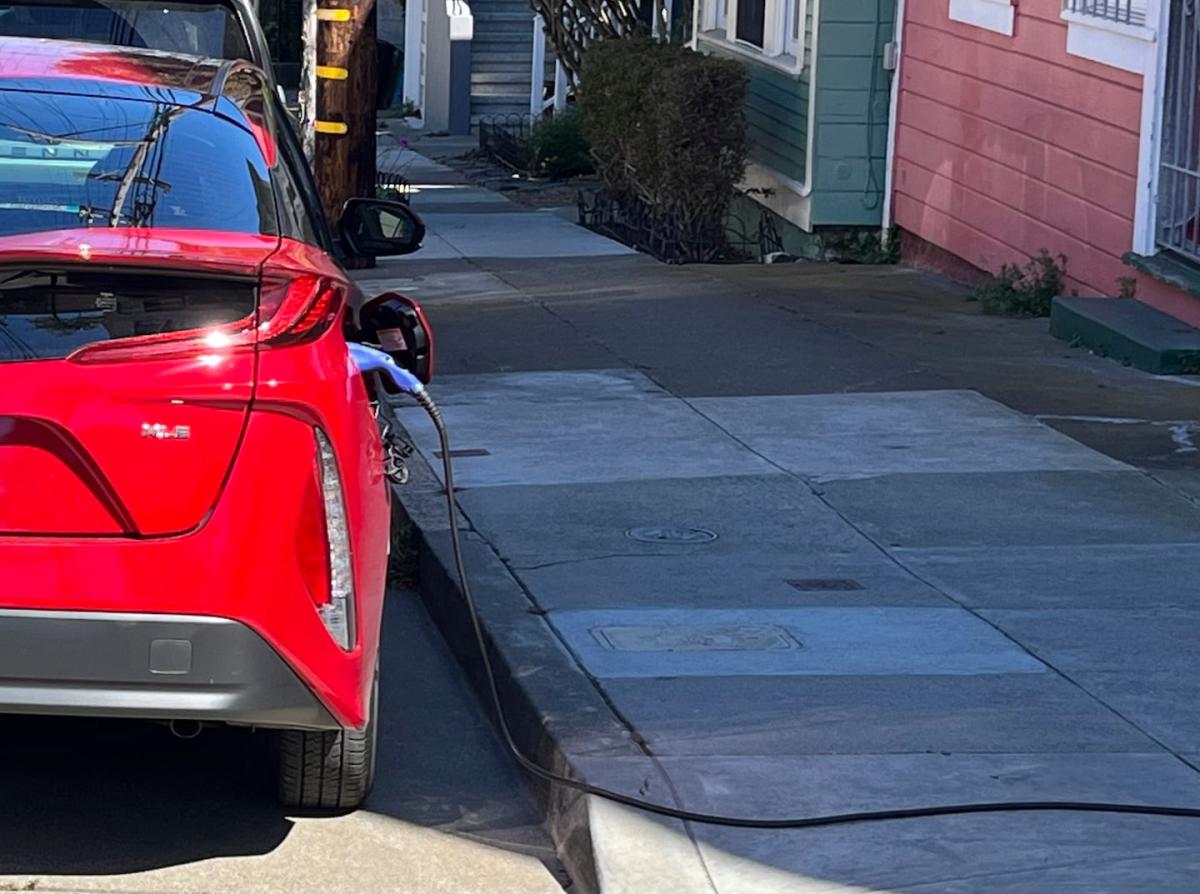If you are one of the 1.4 million Americans who bought an electric car last year, odds are that you live in (and own) a single-family home with a garage. According to one study, homeowners are three times more likely than renters to own an electric vehicle; another analysis of California EV drivers found that 80 percent live in single-family, detached homes.
There’s a reason: Electric cars are most convenient when drivers can charge them overnight - either on a standard outlet or using faster, “Level 2” home charging. “The pivot is definitely among single-family homeowners,” said Ingrid Malmgren, policy director at the EV advocacy group Plug In America. “If you don’t have access to a home charger, it makes a huge difference.”
But there are options for those living in apartment buildings or without a garage. Here’s how you can still go electric if you don’t live in a single-family home.
TLDR: Get your landlord to install a charger. If that won’t work use an extension cord. If that doesn’t work use public chargers.
Well… No shit, Sherlock.
ChargePoint, for example, offers a template letter to send to landlords and various charging options that can allow property managers to make a profit off the sales of electricity in the building.
Article suggests this a solution, when the reality is that it’s the core problem of why renters don’t buy EVs as often.
People know God damned well that if they don’t own their home, any sort of “support” they get is going to result in not just their paying for said support, but putting profit in a few pockets as well.
You wanna charge your car at an apartment complex… No problem, just pay for the space, pay for the power, pay a markup for the charge point operator, pay a markup for the landlord, pay a markup for this, that, and whatever else we can think of…
I wouldn’t even mind a small markup here. I think it should be an amenity like how my complex has a free gym, but it’ll still probably be cheaper and more convenient than gas.
A couple chargers in a central spot, usable only by tenants, as an amenity like you’re describing, is likely viable with a small increase in all the rents, but that’s likely only viable for a decade or two.
As EVs becomes the norm (and I’m assuming they will), it will become less and less viable. From a very simple economic perspective, you’d essentially be adding the fuel costs of a steadiy increasing portion of tenants to the monthly rent, and there isn’t any sort of commercial venture anywhere that’s simply going to accept that kind of a decrease in revenue.
It’s all good if it’s a few tenants in a large complex, but as it scales up, the increase in utility costs (and specific to apartments, the costs of damages) is eventually going to drive it into “pay to play” per individual.
The amenity spots wouldnt be all that likely to be unreasonable in terms of aggressive profit seeking, but once it goes to individual chargers per tenant, all bets are off. It’ll go from a feature to attract new tenants at the landlords expense, to being an individual expense, and an opportunity to “small additional fee” some profits…
Charging at a public spot overnight, or charging at work during office hours works great for me. If the network allows it of course, like in The Netherlands or Norway.
none of these options would work for most people in the US unlesss you are the HOA type
- If you live in an apartment or condo building
slumlords of the US barely do what they are supposed to keep up properties as it is if at all such as bug control (which involves a trip to Lowes for bug bombs which disperses insects all over the rest of the neighborhood) and tree control and everything really
- If you have street parking
whoever wrote this has never had to pay an licensed electrician’s bill
who is going to have the extra funds for some street charging
- If you have to rely on public charging
mostly in bigger cities only (looks great zoomed out but) and have you parked in a big city before just sitting there waiting? cops love to knock on windows would not catch me waiting for hours for a charge
think Captain Planet’s message is on point but we need alternatives for everyone not just those who can afford to be environmentally friendly
This article should not need to be written, but it’s amazing how many column inches out there are written about fast charging.




